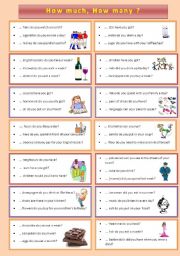
|
How much, how many speaking cards
Pairwork activity for elementary students to practise much & many.
Level: elementary
Age: 14-17
Type: activity-card
Downloads: 291
|
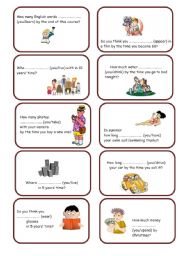
|
Future Continuous, Future Perfect speaking cards (part 1 of 2)
Intermediate and above
Level: intermediate
Age: 14-17
Type: activity-card
Downloads: 134
|
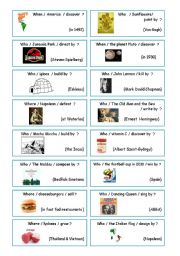
|
Passive Questions
32 general knowledge quiz cards to practise questions in the passive (Simple Present & Simple Past). The level is pre-intermediate to intermediate.
Level: intermediate
Age: 14-17
Type: activity-card
Downloads: 124
|
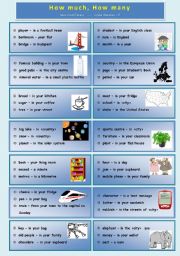
|
How much, how many speaking cards with there is
With the help of these cards students make 3 questions and answers per card with How much or How many + is/are there.
Level: elementary
Age: 10-17
Type: activity-card
Downloads: 117
|
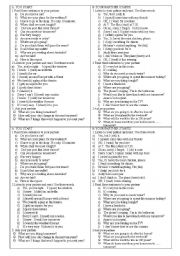
|
Will & be going to speaking activity
Pairwork activity to practise will and be going to.
One of the students reads a sentence
The other responds, using will or be going to.
Level: intermediate
Age: 14-17
Type: activity-card
Downloads: 103
|
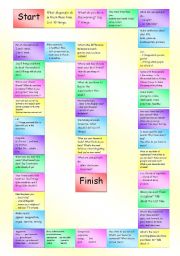
|
Pre-intermediate 1. end-term boardgame (for Total English)
A good way to revise before the end-term test for pre-intermediate students.
I�ve prepared it for Total English pre-intermediate, units 1-5.
Includes vocabulary and grammar.
Level: intermediate
Age: 14-17
Type: worksheet
Downloads: 91
|
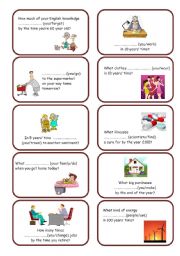
|
Future Continuous, Future Perfect speaking cards (part 2 of 2)
Intermediate and above
Level: intermediate
Age: 14-17
Type: activity-card
Downloads: 81
|
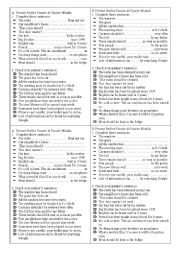
|
Passive Pairwork (modals and Present Perfect)
Student have to guess their partner�s sentences.
All the sentences are either Present Perfect or with a modal verb.
Level: intermediate
Age: 14-17
Type: worksheet
Downloads: 77
|
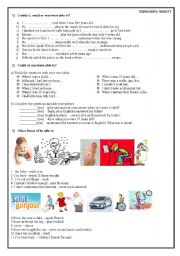
|
Can, be able to (expressing ability)
This worksheet can help your students to practise
- the difference between could and was able to
- the other forms of be able to: Have been able to, will be able to, would like to be able to, used to be able to
Level: intermediate
Age: 10-17
Type: worksheet
Downloads: 64
|
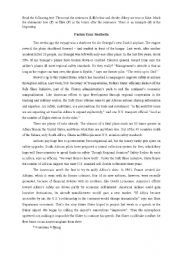
|
Reading comprehension for B2 exams: Airport in Senegal
B2 true or false reading comprehension exercise
Key included
Level: intermediate
Age: 13-17
Type: reading
Downloads: 50
|